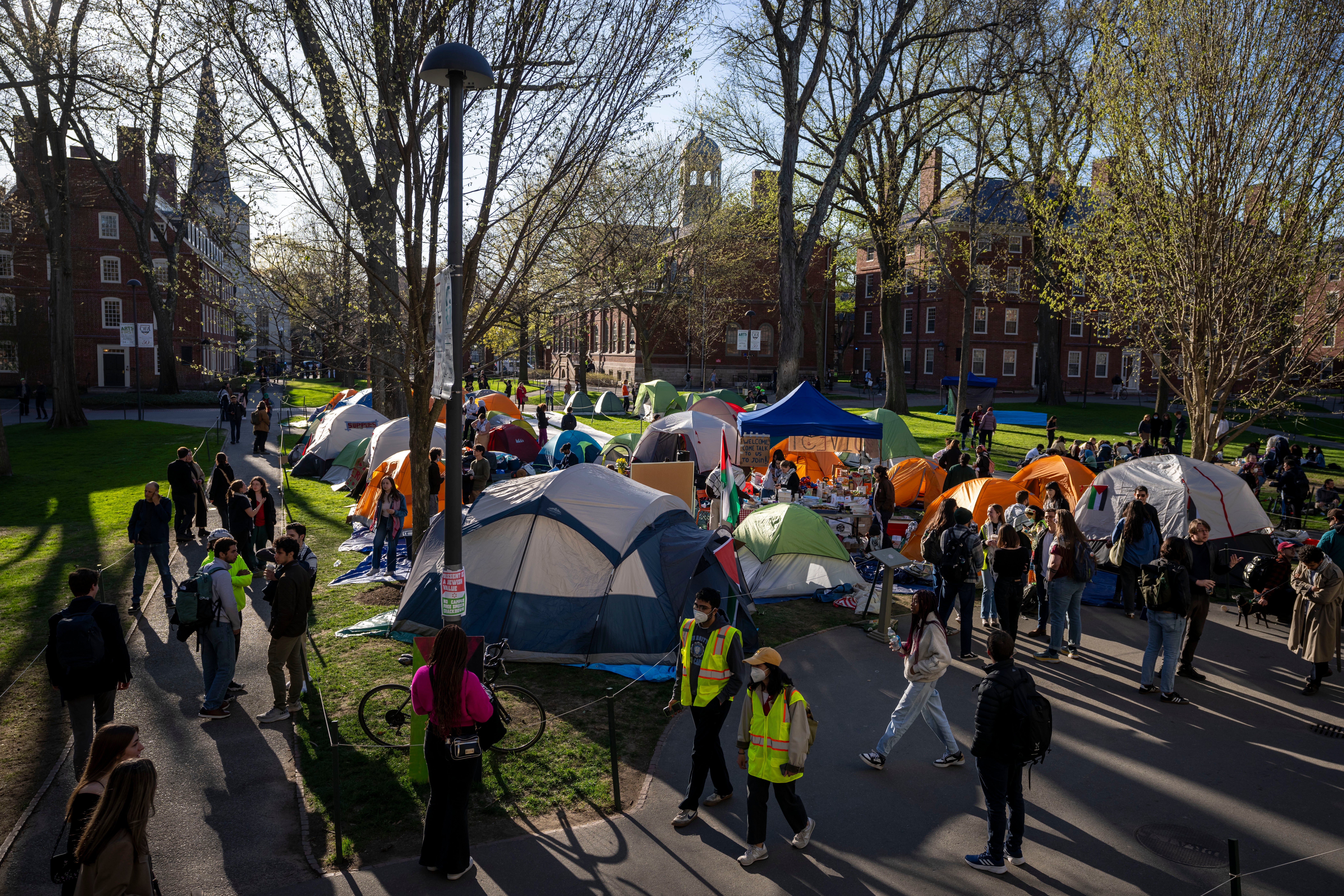Thousands less pro-Palestine protests this semester after new speech rules and encampment crackdowns
Universities instituted new rules on demonstrations, masks, and acceptable terms during protests after initial spring wave of pro-Palestine campus actions
Your support helps us to tell the story
From reproductive rights to climate change to Big Tech, The Independent is on the ground when the story is developing. Whether it's investigating the financials of Elon Musk's pro-Trump PAC or producing our latest documentary, 'The A Word', which shines a light on the American women fighting for reproductive rights, we know how important it is to parse out the facts from the messaging.
At such a critical moment in US history, we need reporters on the ground. Your donation allows us to keep sending journalists to speak to both sides of the story.
The Independent is trusted by Americans across the entire political spectrum. And unlike many other quality news outlets, we choose not to lock Americans out of our reporting and analysis with paywalls. We believe quality journalism should be available to everyone, paid for by those who can afford it.
Your support makes all the difference.There were thousands less pro-Palestinian demonstrations on U.S. campuses this fall than the previous semester, according to new data.
Such protests declined by more than 64 percent between the two semesters, from 3,220 actions to 1,151, according to an Inside Higher Education analysis of data from Harvard University and the University of Connecticut.
Arrests dropped over the same period by an even greater share, falling from 3,572 to 88.
The sharp decline in activity comes after universities instituted a suite of additional protest restrictions and speech rules, following amped-up nationwide protests in the immediate aftermath of the October 7 Hamas terror attack on Israel and the resulting Israeli invasion of Gaza.
The protests captured nationwide attention, prompted congressional hearings and university resignations, and came alongside a spate of both antisemitic and Islamophobic incidents on campus.
As The Independent has reported, following the campus protests, in particular encampments and occupations of university buildings, schools raced to formulate new policies to avoid the chaos of the spring semester, including banning face masks, requiring pre-approval for protests, and restricting the use of specific terms like “Zionist.”
The protests also prompted campuses across the country to send in heavily armed riot police to break up encampments, which may go towards explaining fall’s decline in activity.

Such police responses earned criticism at universities like UCLA, where riot officers in May violently broke up an encampment for security reasons after officers largely stood by for hours as a masked mob attacked the interfaith group of protesters gathered there.
“They didn’t protect the protesters when there was clear violence happening,” UCLA political science major Tajvir Dhesi of Texas, previously told The Independent.
This semester, campus protests have taken on a more muted tone, though these have been met with punishment, too.
Harvard faculty were temporarily banned from the campus library in October for conducting a silent “study-in” protest, in solidarity with a group of students who were punished for conducting a similar protest earlier the previous month.
The protests in the U.S. may have waned, but the underlying Israel-Hamas conflict that inspired them continues unabated.
More than 45,000 Palestinians have been killed in the fighting, over half of them women and children, according to officials in Gaza, nearly two percent of the territory’s population.
That figure joins the roughly 1,200 people killed in the initial October 7 attack, as well as roughly 100 Israeli hostages remaining in Hamas captivity.
This week, Human Rights Watch accused Israel of conducting acts of genocide by systematically denying Palestinians access to enough water to survive.
"This isn’t just negligence," HRW executive director Tirana Hassan told the BBC. "It is a calculated policy of deprivation that has led to the deaths of thousands from dehydration and disease that is nothing short of the crime against humanity of extermination, and an act of genocide."
Israel has denied the allegations and called them “propaganda.”
Last month, a UN special committee investigating the conflict found that the fighting in Gaza was consistent with characteristics of genocide.
“Through its siege over Gaza, obstruction of humanitarian aid, alongside targeted attacks and killing of civilians and aid workers, despite repeated UN appeals, binding orders from the International Court of Justice and resolutions of the Security Council, Israel is intentionally causing death, starvation and serious injury, using starvation as a method of war and inflicting collective punishment on the Palestinian population,” the committee said.
Join our commenting forum
Join thought-provoking conversations, follow other Independent readers and see their replies
0Comments